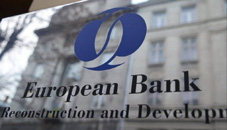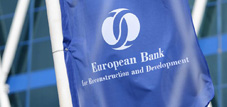EBRD sets new investment record in Georgia in 2019
Monday, January 27


“I am delighted with the results we achieved in Georgia last year. This is thanks to a strong team of professionals at the local office and all our partners, local entrepreneurs and international donor organisations who are passionate about furthering Georgia’s economic development. We remain committed to creating a brighter future for the country and making people’s lives better,” enthused Catarina Bjorlin Hansen, EBRD Regional Director for the Caucasus.
In the municipal infrastructure sector, the EBRD in 2019 financed the purchase of 200 modern, low-floor buses for the capital Tbilisi, as well as 175 new buses for the six cities of Gori, Kutaisi, Poti, Rustavi, Telavi and Zugdidi. The buses will offer passengers more comfort and will have considerable environmental benefits, meeting EU emission and health and safety standards.
These projects are in line with the EBRD’s innovative Green Cities concept, which offers a holistic, systematic approach to address the challenges of developing cities. Its main objective is the sustainability of good air quality and efficient use of resources.
The EBRD trained 20 female bus drivers as part of a technical cooperation programme funded by Japan. The Bank also supported the Tbilisi Transport Company with a gender advisory services programme.
In the power sector, the Bank continued to support the generation of renewable energy; an investment to rehabilitate the Enguri hydro power plant has increased efficiency and ensured the security of electricity supply.
Special attention was paid to reforms in the renewables sector. The EBRD worked with the government to facilitate and diversify energy sources by leading preparatory work on an auction of the country’s solar capacity.
The Bank continued to support the private sector through credit lines to local partner banks as well as through direct loans.
The Bank successfully used the funds under the Deep and Comprehensive Free Trade Area (DCFTA) credit line with partner banks, and signed additional DCFTA credit lines with two partner banks. Thanks to the European Union (EU) as a grant provider, these on-lending facilities via local partner banks provide finance and expertise to enterprises, supporting the modernisation of their product and service standards (in accordance with Association Agreement (AA) and DCFTA requirements) and boosting trade with the EU.
The EBRD promoted green financing by launching a Green Economy Financing Facility (GEFF), a new and innovative product, and signing loans with three partner banks to strengthen energy efficiency. Through on-lending via local partner banks, the EBRD will continue to support corporates and households to improve industrial and residential energy efficiency.
The EBRD continued its engagement with the Georgian authorities through the Investors’ Council to improve the investment climate and facilitate reforms.
Following close cooperation with the EBRD, the Georgian parliament passed a package of laws regulating the local financial markets and amendments to capital market legislation. This is a milestone in the development of Georgia’s capital markets, allowing companies to safely and efficiently hedge their risk and exposure.
To date, the EBRD has invested over US$ 4 billion through 249 projects in Georgia.
